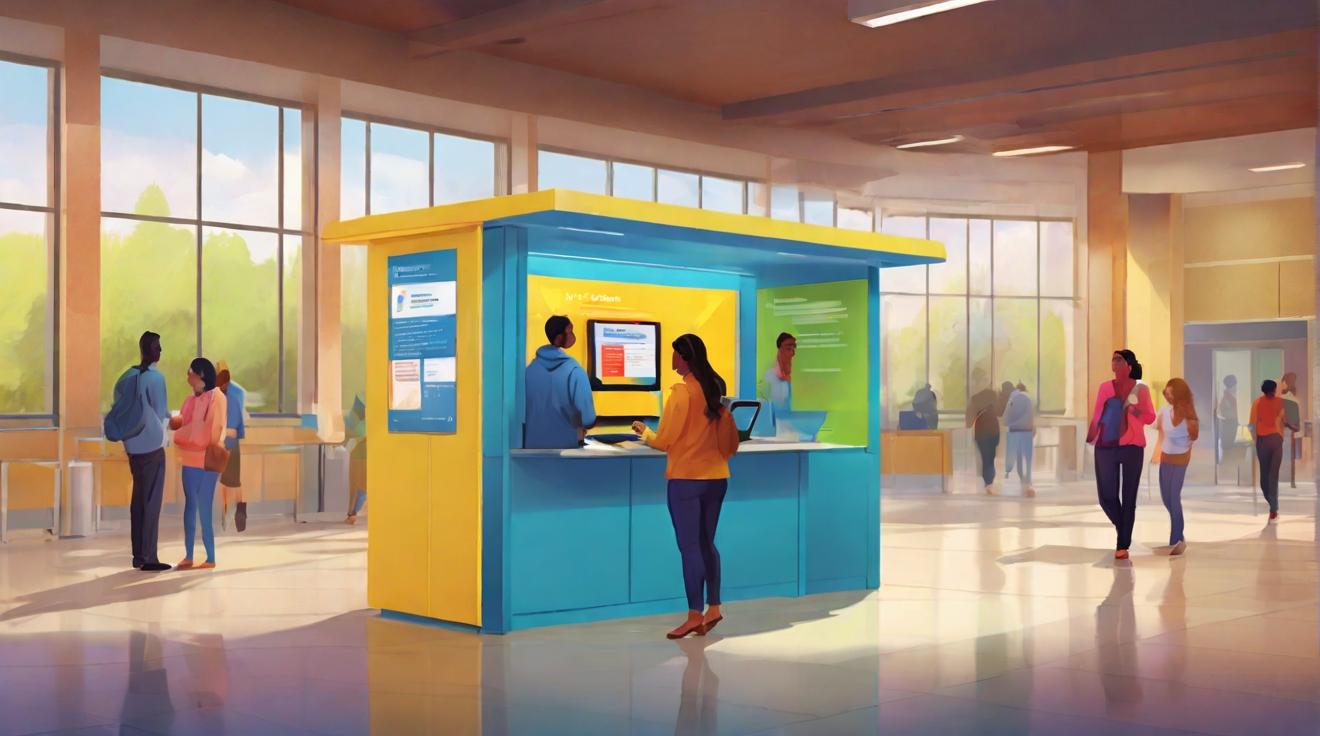Fairfax County Explores AI Kiosks to Simplify Legal Queries
In a pioneering move, the Fairfax County Board of Supervisors is contemplating the introduction of advanced kiosks, with the integration of artificial intelligence to dispense specific legal information across a multitude of languages. This innovative concept, championed by Franconia District Supervisor Rodney Lusk, aims to employ a virtual assistant capable of addressing frequently asked questions through a closed-AI system.
Unlike conventional systems, this AI is designed to not generate its own responses but rather provide pre-programmed answers to common inquiries. The content of these questions is not yet solidified, indicating an adaptive approach to developing these kiosks' functionalities. Primarily, these kiosks aspire to aid users in identifying relevant forms and navigating process-related questions efficiently – a critical lifeline for those navigating the intricacies of legal procedures.
In addition to physical kiosks, the virtual assistant will be accessible online, ensuring both platforms are equipped with essential accessibility features, thus broadening their reach.
Currently under review by county and court staff, these AI-driven resources are slated for comprehensive testing, with plans to collaborate with relevant non-profits for a thorough evaluation process. Board of Supervisors Chairman Jeff McKay underscored the importance of this initiative, emphasizing the need for user testing and cautioning against hasty implementations.
The inception of these kiosks and the digital assistant is seen as an augmentation to the self-help resource center, inaugurated in October to support residents who are representing themselves in court. By potentially situating these kiosks in strategic, remote government facilities, Rodney Lusk illustrates a commitment to enhancing accessibility and convenience for Fairfax County residents.
With the board’s unanimous decision to advance this discussion to the health and human services committee, scheduled to meet next on June 4, it’s clear there's a unanimous mandate to ensure that these kiosks don’t merely serve as technological novelties but as practical, user-centric tools that enrich the community's access to necessary legal information.
In sum, Fairfax County is at the cusp of integrating technology and legal aid in a manner that redefines public access to legal resources. With a keen eye on user experience and an unwavering commitment to accessibility, these AI kiosks and online assistants could very well set a new standard for public legal assistance.
Analyst comment
Positive news: Fairfax County is exploring the use of AI kiosks and virtual assistants to simplify legal queries. These kiosks aim to provide pre-programmed answers to common legal questions and assist users in navigating legal procedures. The virtual assistant will be accessible online, and the initiative is set for comprehensive testing and evaluation. The integration of technology and legal aid demonstrates a commitment to enhancing accessibility and improving public access to legal resources.
Market impact: The market for AI technology in legal services is expected to grow as more government entities and organizations adopt similar initiatives. This could lead to increased demand for AI solutions in the legal industry, potentially benefiting companies that provide such technology.













